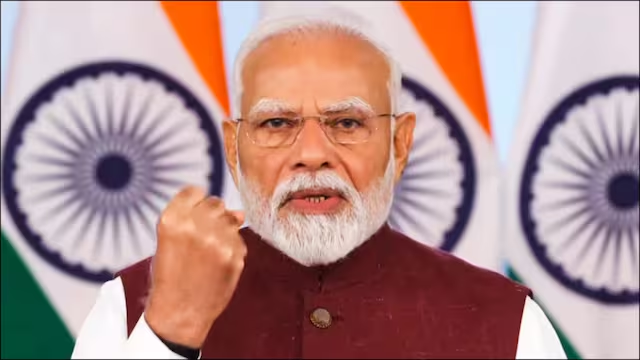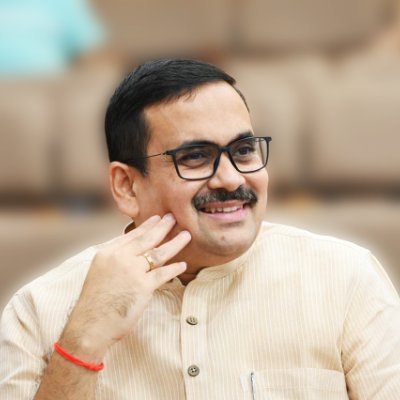Prime Minister Narendra Modi’s fundamental governance philosophy reflects Deendayal Upadhyaya’s thought and vision
The 60th year of Pandit Deendayal Upadhyaya’s historic lectures that shaped the philosophy of Integral Humanism is being commemorated at a time when a BJP’s Prime Minister completes 11 years in office. Narendra Modi may not have met or heard Deendayal Upadhyaya, but he has certainly emerged as one of Upadhyaya’s finest exponents, manifesting the latter’s aspirations and hopes through his governance vision and action.
In the course of a public life that spans more than four decades, Modi must have had the opportunity to mingle with many stalwarts of the movement who were moulded and shaped by Upadhyaya. Upadhyaya, the RSS pracharak, was deputed to the newly formed Jana Sangh, as Dr Syama Prasad Mookerjee’s understudy in 1951. He went on to shoulder the burden of laying the foundation of the new political party for the next 15 years, emerging as one of the tallest leaders of the Nehruvian and the immediate post-Nehruvian era.
Modi, an RSS pracharak, was deputed to the newly formed BJP and for the next three odd decades, toiled for the new party, at various levels, till he scripted and charted out for it a historical course that is altering India’s trajectory. Deendayal Upadhyaya established the Jana Sangh as an alternate pole in Indian politics, while Modi has been successful in positioning the BJP as the pre-eminent political party in India in three decades.
These three decades were characterised and dominated by coalition politics and unstable governments which were pulled in various directions under the exigencies of political demands and short-term calculations. Absent, during these three decades, was a grand narrative of where India ought to be and of how to reach that position. Narendra Modi has comprehensively altered that. He has drawn a grand narrative sculpted and chiselled by the goal of “Viksit Bharat” and of “Amrit Kaal.”
Atal Bihari Vajpayee, a direct political disciple and colleague of Deendayal Upadhyaya, was the first ever non-Congress Prime Minister to complete a full tenure. Vajpayee’s six years at the helm saw flagship initiatives being launched which reflected many aspects of governance and policies that Upadhyaya had advocated in his writings, public addresses and talks.
Throughout Upadhyaya’s tenure as general secretary, the Jana Sangh had advocated the necessity of India going nuclear. One of the first major decisions that propelled India to the status of a major nuclear power was Vajpayee’s decision to go in for the nuclear tests in May 1998. The flagship ‘Sarva Shiksha Abhiyan’, launched by Vajpayee which saw a massive grassroots focus on education especially among the most marginalised, was another governance milestone that manifested Upadhyaya’s philosophy and his hopes of empowering and equipping those left out and left behind.
Pandit Deendayal Upadhyaya delivered his four lectures at Mumbai’s Ramnarain Ruia College grounds on the philosophy of Ektaama Manava Darsana on April 22-25, 1965. These lectures eventually formed the bed-rock of the Bharatiya Jana Sangh and later the BJP’s political philosophy and action. It was for the first time that a political party, formed after Independence, discussed, debated and articulated a political philosophy which it sought to embody and express through a political programme.
The philosophy spoke of unleashing India’s civilisational powers, of making her self-reliant through her own strengths, of seeing her regain her rightful place as “Viswamitra” (a friend of the world). A power that is benign but not powerless. Upadhyaya spoke of India seeking out her own all-around progress, based on her innate strengths and experiences. This national march towards prosperity, Upadhyaya’s philosophical postulates insisted, had to be equitable, no one could be left behind.
In Upadhyaya’s lectures one discerns the hope of ushering in a Viksit Bharat and a Samriddha Bharat. In his concluding lecture, Deendayal Upadhyaya defined the goal when he said: “Our goal is not merely to protect the culture but to revitalise it so as to make it dynamic and in tune with times. We must ensure that our nation stands firm on this foundation and our society is enabled to live a healthy, progressive and purposeful life…” Upadhyaya spoke of creating a Bharat, which “will enable every citizen in its fold to develop his manifold latent potentialities…” Narendra Modi, as Prime Minister, in the last eleven years has been driven by these fundamental governance parameters. PM Modi has harped on collective national prosperity and strength. To realise a healthy and purposeful living has been the key-goals of his governance action.
Narendra Modi’s vision of “Garib Kalyan”, his governance philosophy of reaching out to the most marginalised, his unceasing emphasis on aatmanirbharta (self-reliance), his uncompromising championing of India’s national interest and of her national security, his “Panchamrit” foreign policy, which is a shift from a powerless and defensive ‘Panchsheel”-driven foreign policy, his focus on securing and developing India’s borders, his concept of “Jan Bhagidari”, his fulfilling the promise of “One Nation, One Constitution”, his vision of “Ek Bharat, Sresht Bharat”, his emphasis on “Vikaas aur Viraasat”, which means development along with the preservation and dissemination of the fundamentals of our national heritage and inheritance, fundamentally and intrinsically reflect Deendayal Upadhyaya’s thought and vision.
(The views expressed are the author's own and do not necessarily reflect the position of the organisation)


